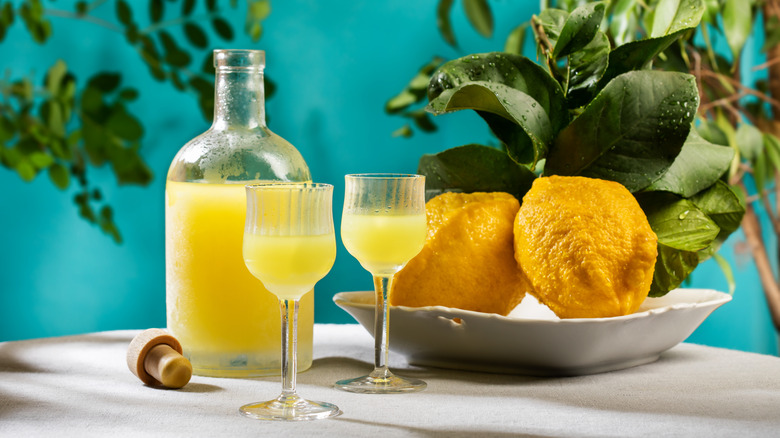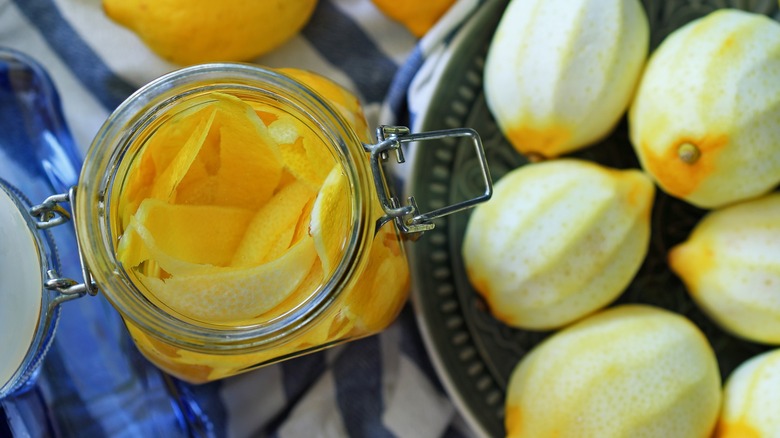Why Your Homemade Limoncello Needs To Start With High-Proof Grain Alcohol
Sweet, refreshing, and evocative of the Italian coast, limoncello is a delight to drink. It's easy to make, too: the basic recipe involves steeping lemon peel in neutral-tasting grain alcohol to extract the oils and mixing the infusion with simple syrup. Classic limoncello recipes call for exceptionally high-proof booze like Everclear — upwards of 190-proof, or 95% ABV. If you balk at the idea of drinking 190-proof liquor, you might be wondering if that's necessary. However, while Everclear is (generally) best left at college parties, there are a few good reasons why so many Lemoncello recipes call for ultra-high-proof spirits — and it's not just so the drink packs a powerful punch.
First, keep in mind that while limoncello is a high-proof drink, the final product will be diluted with water (or half-and-half, if you're making crema di limoncello). Most store-bought limoncello sits at a less-intimidating 60- to 70-proof, or 30% 35% ABV, though homemade recipes can go up to 76-proof, or 38% ABV. Plus, the high alcohol content also keeps the drink from turning into a solid block of ice when frozen. Limoncello is often served straight from the freezer for a refreshing, silky-smooth aperitif, and a lower proof will ruin the effect. Finally, a higher-proof alcohol will do a better job extracting the flavor. It'll bring out a fresh, aromatic flavor with a smooth finish, just the kind of flavor you'd expect from a homemade recipe made with fresh lemons.
What alcohol should you use for limoncello?
Most limoncello recipes recommend Everclear, since the drink, which has a neutral taste and a smooth finish, is one of the strongest spirits around. But, while Everclear is found at many American liquor stores, alcohol that tops 190-proof isn't readily available (or even legal!) everywhere, and many people simply prefer a less potent drink. If you aren't able or willing to get your hands on a bottle of Everclear, you can also use a high-proof vodka, ideally 100-proof. The regular, 80-proof vodka that you probably have stashed in your liquor cabinet will work, too.
If you use lower-proof alcohol, though, you'll need to steep the peels significantly longer. While high-proof alcohol will extract enough flavor in a matter of days, peels steeped in 80-proof liquor will need to rest for an entire month.
Keep in mind that, if you plan to freeze the drink, your limoncello needs to be at least 30% ABV, or 60-proof. Having trouble calculating the percentage? Limoncelloquest has a great calculator for your next batch, that isn't just useful for figuring out the ABV; it will also help you figure out how much sugar and water you should use to get the strength and sweetness that you want.

